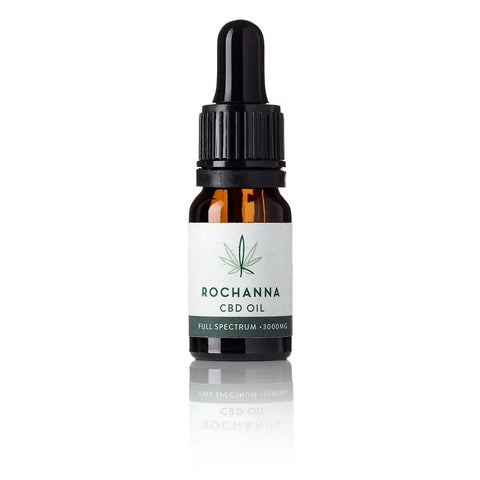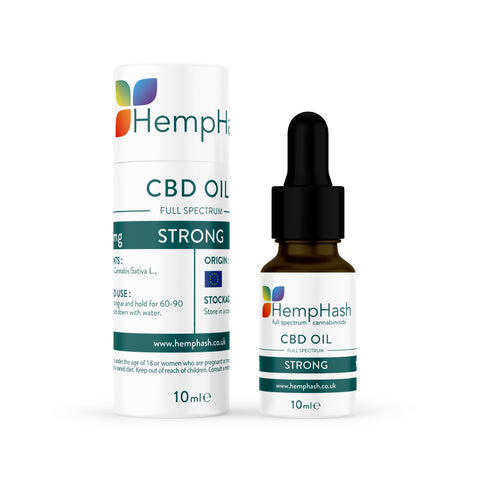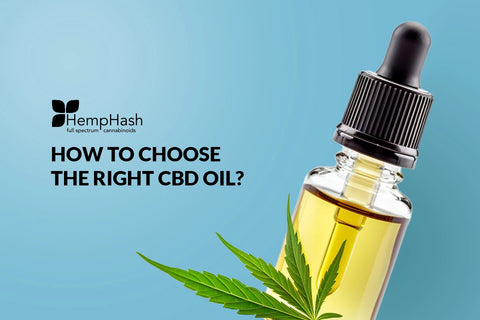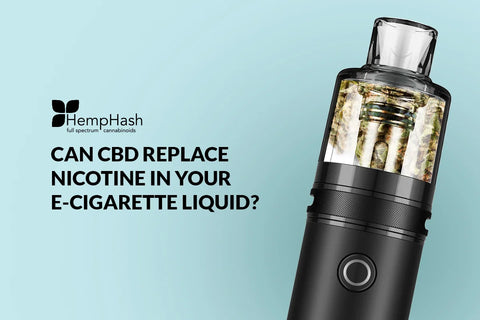In UK, CBD oil has gained immense popularity due to it's potential therapeutic properties and wellness promoting advantages. With so many brands and types of CBD oil available on the market today, how can you make sure that you select the right one? This comprehensive guide will help you make an informed decision.
What are the different sources of CBD oil?
CBD oil is extracted from CBD flower, a variation of the cannabis plant, which contains high levels of CBD and minimal amounts of THC. However, not all hemp plants are created equal, and it is essential to understand where your CBD comes from. Some factors to consider when choosing a CBD oil include:
- The type of hemp used - Is it organic or non-organic?
- The growing conditions - Was the hemp grown in a regulated, pesticide-free environment?
- The extraction process - How was the CBD oil extracted from the plant?
Organic vs. non-organic hemp source
It would be best if you aimed to buy CBD oil made from organically grown hemp. Organic hemp ensures that your CBD oil is free from harmful chemicals, pesticides, and fertilisers. Be cautious when purchasing CBD oil at places like petrol stations and smoke shops, as these CBD products may not always come from reputable sources or provide adequate information about their origin.

£62.50
Full spectrum
Neutral
30%

Full spectrum
Neutral
20%
Check the type of CBD extract
There are three main types of CBD extracts available: full-spectrum, broad-spectrum, and CBD isolate. Each offers unique benefits depending on your personal needs and preferences.
Full-spectrum CBD oil
Full-spectrum CBD oil contains all the natural compounds found in the CBD flower, including trace amounts of THC (less than 0.2%). This type of CBD extract is believed to provide the most significant health benefits due to the "entourage effect," a phenomenon where cannabinoids work synergistically to enhance their therapeutic potential.
Broad-spectrum CBD oil
Broad-spectrum CBD oil also contains various naturally occurring compounds like full-spectrum but has the THC completely removed. This type of CBD extract may be ideal for those who want to experience the entourage effect without consuming any THC.
CBD isolate
CBD isolate is the purest form of CBD, containing no other cannabinoids or plant compounds. This type of extract may suit individuals looking to avoid even trace amounts of THC, as well as those interested in customizing their CBD dosage based on their specific needs.
Verify the potency and concentration
Different CBD products will have varying potencies and concentrations. It is crucial to understand how much CBD is present in your chosen product to assess its effectiveness and ensure proper dosing.
- Refer to the product label: Reputable brands will list the concentration of CBD on the product label, in milligrams (mg). Look for clear information regarding the amount of CBD per millilitre (ml) or serving size.
- Request a Certificate of Analysis (COA): The COA is an essential document that verifies the product's purity, potency, and confirms that it contains the claimed amount of CBD.
How to evaluate the ingredients list?
Apart from CBD concentration and origin, it is vital to consider additional ingredients included in the CBD oil. By examining the list of ingredients, you can identify any potential allergens, synthetic chemicals, or fillers that may be added to the product.
- Look for natural additives: High-quality CBD oils will often include additional natural ingredients such as essential oils, terpenes, and carrier oils like coconut oil or hemp seed oil. These ingredients can enhance the effectiveness of the CBD and contribute to its overall quality.
- Avoid harmful ingredients: As with any wellness product, always choose CBD oils free from artificial colours, flavours, preservatives, and other potentially harmful compounds.
How to select the appropriate dosing method?
CBD oil comes in various forms, such as tinctures, creams, capsules, and even edibles. Some people prefer one method over another depending on their personal needs and preferences. The following are some popular CBD oil dosing methods:
CBD Tinctures
CBD oils are alcohol-based extracts that are usually taken sublingually (under the tongue) or mixed into beverages. They offer a fast-acting way to consume CBD and have higher bioavailability compared to some other methods. CBD oil can sometimes taste bitter, which may turn off some users.
CBD Capsules
CBD oil capsules provide an easy and discreet way to take your desired dose without having to measure it out manually. However, they may take longer to produce effects because they need to be broken down by the digestive system first.
CBD Topicals
For those seeking targeted relief for skin issues or localized discomfort, CBD topicals like lotions, balms, or salves can effectively deliver CBD directly to the affected area.
How to determine the ideal CBD dosage?
Identifying the correct CBD oil dosage can be confusing due to variations in individual responses and product potency. Although research is still limited regarding the appropriate dosing of CBD, some general guidelines can help you choose a suitable starting point.
- Start with the lowest dose: Always begin by taking smaller doses of CBD, then gradually increase as needed until you achieve your desired outcome.
- Adjust accordingly: Pay attention to how your body reacts to the CBD, and adjust the dose accordingly if necessary or tolerable side effects arise.
- Consult with a healthcare professional: For those who are new to using CBD oil or have pre-existing health conditions, discuss your intentions with a qualified healthcare professional before beginning any supplementation regimen.
In conclusion, choosing the right CBD oil involves thorough research and consideration of multiple factors such as hemp source, type of extract, concentration, ingredients, and personal preferences. By following these guidelines, you will be well-equipped to make an informed decision that prioritises your health and well-being.



